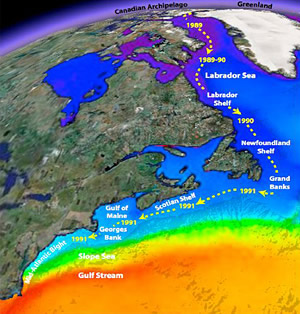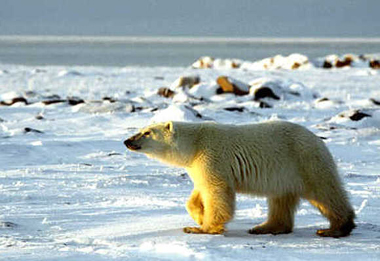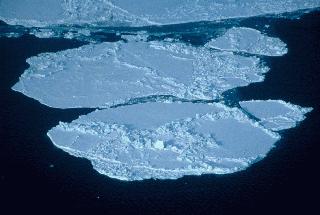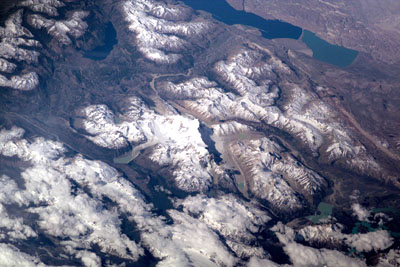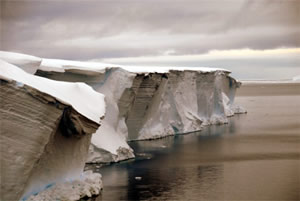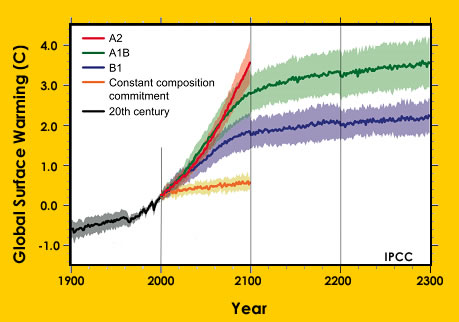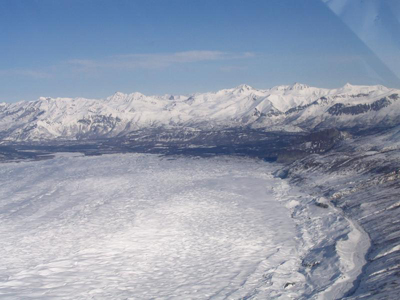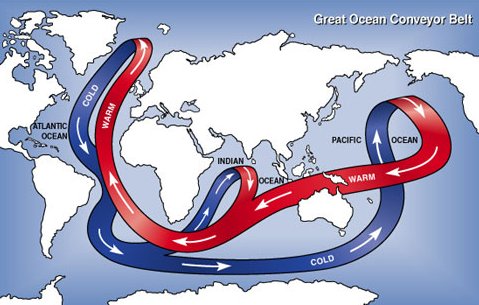Click on image for full size
Image Courtesy of Chuck Greene, Cornell
Ecologists Use Oceanographic Data to Predict Future Climate Change
News story originally written on November 7, 2008
Scientists are using what they know about ocean circulation and the past climates in the Arctic region to predict the future impacts of climate change. They think if the changes that are currently happening in the Arctic and North Atlantic Oceans continue, changes in ocean circulation will occur that could affect other oceans on Earth, and this could cause major changes in the world's climate.
The scientists looked at the patterns of climate change in the Arctic over the last 65 million years. In that time, the Earth has undergone different periods of warming and cooling. When the Earth warms, sea ice in the Arctic gets smaller; when the Earth cools, Arctic sea ice expands.
Charles Greene, the lead author on the study, explains, "When the Arctic cools and ice sheets and sea ice expand, the increased ice cover increases albedo, or reflectance of the sun's rays by the ice. When more of the sun is reflected rather than absorbed, this leads to global cooling."
Likewise, when ice sheets and sea ice get smaller, the darker-colored land or ocean underneath is exposed, heat is absorbed, and climate warming increases. Currently, the Earth is in a period where the ice sheets are smaller and the temperatures are warmer. These changes in Arctic climate and ice cover have led to several major changes in northern ocean circulation patterns over the last thirty years.
Dr. Greene explains that when Arctic climate changes, waters in the Arctic Ocean can go from storing large quantities of freshwater to sending that freshwater to the North Atlantic. Once these waters flow southward, they disrupt the ocean's circulation patterns and change the temperature of the water. This happened in the early 1990s and led to a major shift in the ecosystems of the Northern Atlantic Ocean. In some parts of the ocean there were major drops in salinity, the water temperatures changed, and there was an increase in the amount of plankton. Some of these changes hadn't occurred in over 800,000 years, so scientists see this as an example of a large impact of climate change.


